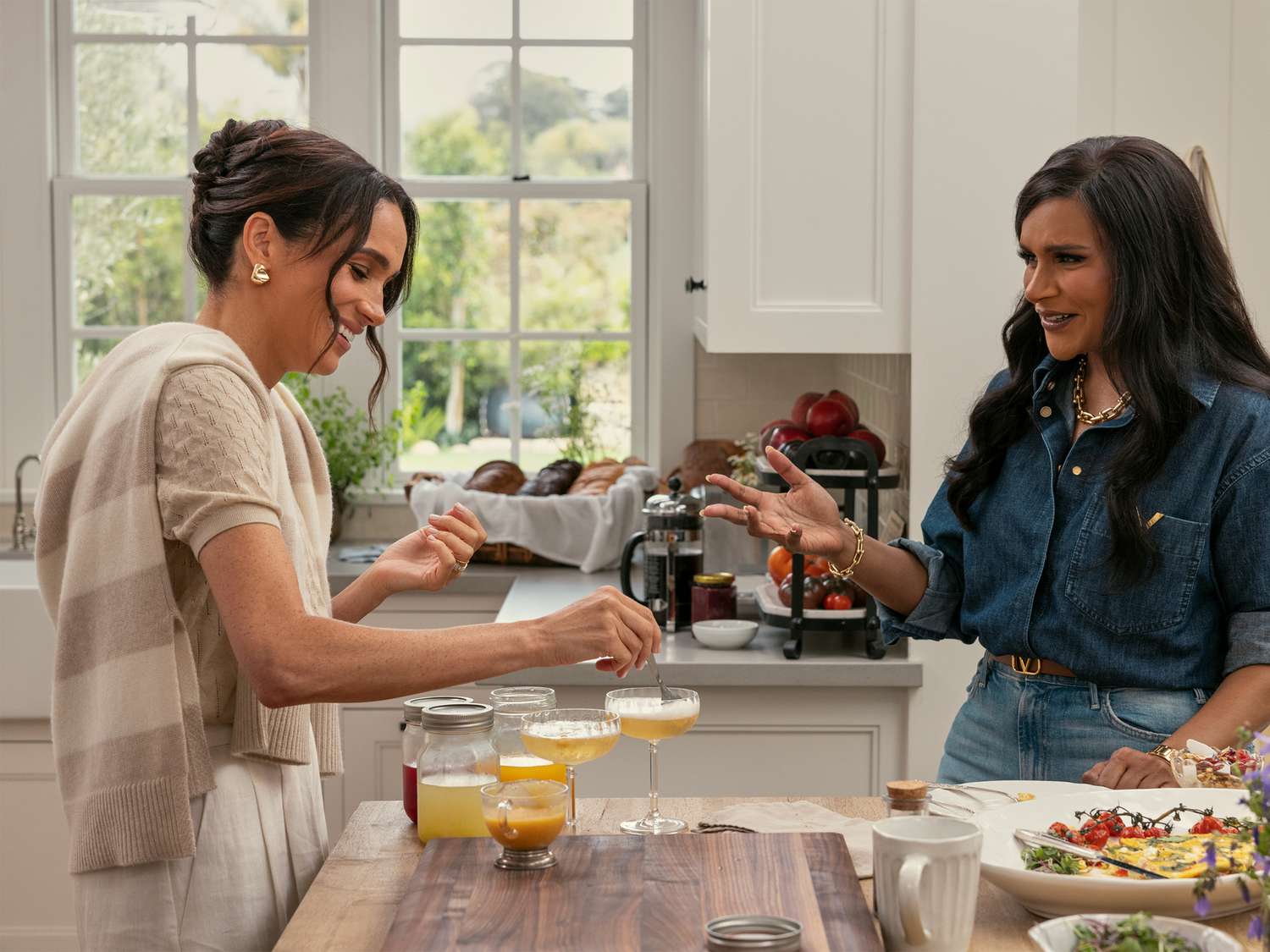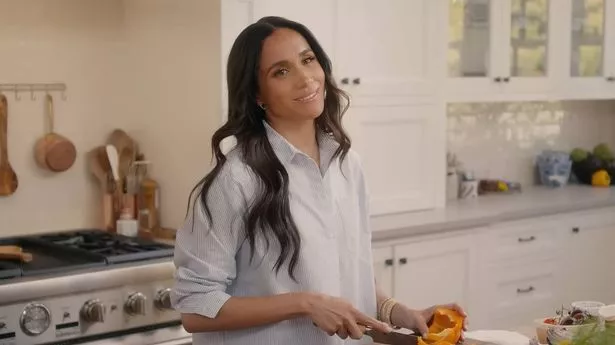Meghan Markle’s latest Netflix venture, With Love, Meghan, premiered on March 4, 2025, to a chorus of criticism that exposes its shallow, out-of-touch nature. Billed as a lifestyle and cooking series showcasing the Duchess of Sussex’s “joyful approach to entertaining,” the show instead delivers a cringe-inducing parade of privilege, empty platitudes, and Instagram-ready aesthetics that feel wildly disconnected from reality. For a world grappling with economic struggles, climate crises, and social unrest, With Love, Meghan is a tone-deaf misstep that alienates more viewers than it charms.
The premise is simple: Meghan invites celebrity friends like Mindy Kaling and Abigail Spencer to her $8 million Montecito mansion for lavish lunches, gardening tips, and heartfelt chats over crudités and edible flowers. But the execution is where it falls apart. As The Guardian sharply observed, the series “vibrates with a vacuous, over-styled joylessness,” offering little substance beyond glossy visuals and Meghan’s whispered musings about “staying in the calm” of her privileged bubble. The show’s obsession with perfection—perfectly arranged floral centerpieces, pristine organic produce, and designer outfits—feels like a parody of aspirational living, one that’s laughably out of reach for most viewers struggling with rising costs and stagnant wages.
Critics have pounced on the show’s lack of self-awareness. Royal historian Dr. Tessa Dunlop told
The Mirror that Meghan’s ventures, including With Love, Meghan, risk making her a “laughing stock” by showcasing an “Instagram-ready aesthetic” that feels tone-deaf in 2025. With inflation still biting, housing crises worsening, and global tensions escalating, the sight of Meghan collecting honey in a beekeeper outfit or gushing over $50 flower sprinkles (part of her As Ever lifestyle brand, formerly American Riviera Orchard) feels like a slap in the face to ordinary people. The Washington Post noted that the series spends “significantly more time focused on her love of crudités and edible flowers” than on any meaningful connection with viewers, reducing Meghan to a “stealth salesperson” for her products rather than a relatable figure.

The show’s production value, while slick, can’t mask its emptiness. Directed by Michael Steed, known for Anthony Bourdain: Parts Unknown, With Love, Meghan aims for the warm, intimate vibe of shows like Selena Gomez’s Selena + Chef. But where Gomez’s series balances humor and relatability, Meghan’s feels forced and hollow. Her celebrity guests, while charming, add little depth, often serving as props in a carefully curated performance of wealth and leisure. As Collider reluctantly admitted, the criticism of With Love, Meghan may be harsh, but the show struggles to justify its existence beyond being a vanity project for the Duchess.
Perhaps most damning is the show’s timing. In a year marked by protests over inequality, environmental collapse, and political division, With Love, Meghan feels like a relic of a bygone era of celebrity excess. The New York Times called it “a tone-deaf lifestyle show in a $8 million Montecito farmhouse while the U.S. and beyond goes to hell in a handcart,” a sentiment echoed across social media. On X, users slammed the series as “out of touch” and “insufferable,” with one post garnering 50,000 likes: “Meghan whispering about good vibes for her bees while people can’t afford rent is peak privilege.”
Meghan’s attempt to rebrand herself as a lifestyle guru—complete with her As Ever product line of jams, teas, and sprinkles—only deepens the disconnect. The show doubles as a promotional vehicle for her brand, with product placements so blatant they border on parody. Variety reported that the series is part of Meghan and Prince Harry’s $100 million Netflix deal, set to expire at year’s end, raising questions about whether With Love, Meghan is more about salvaging that partnership than offering genuine value to viewers.
Ultimately, With Love, Meghan fails to resonate because it prioritizes style over substance, privilege over relatability. It’s a glossy, joyless exercise in self-promotion that alienates rather than inspires. For a platform like Netflix, which thrives on diverse, meaningful content, this series feels like a miscalculation—a reminder that even a duchess can’t polish over a lack of authenticity. As viewers turn away in droves, With Love, Meghan stands as a cautionary tale of celebrity excess in an era that demands far more.
